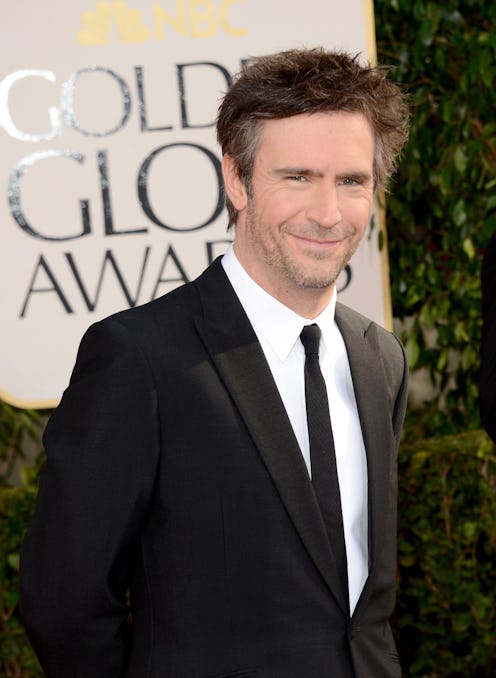Entertainment
'Breathless' Takes You Back to the '60s
Showtime and Steven Soderbergh's The Knick isn't the only period medical drama hitting screens this year. Breathless , a PBS Masterpiece three-part series is also coming to a television set near you, albeit with a soapier bent. Set in the 1960s, Variety's Brian Lowry has drawn parallels between Breathless and Mad Men, and there is definitely a certain Dr. Draper vibe to the show's trailer (shown below). A brooding, deep-staring star woos women and hides things in drawers while everyone rocks some retro threads and then occasionally also operate on people.
While we in the U.S. are getting the show through Masterpiece (who co-produced the show), British press seems to indicate that the series received lukewarm response at home. Metro UK reports that viewership dropped by more than half from the first season's beginning to end and thus its original network ITV decided not to renew it after it's original run. Having said that, American audiences are still bound to be attracted to the PBS airing.
Deadline reports the show boasts tons of things Americans love, namely Game Of Thrones ‘ Iain Glen and Downton Abbey ‘s Zoe Boyle. The show doesn't just take place in any hospital, by the way, but in a gynecology unit. Deadline points out how significant this is: this is an era where terminating a pregnancy is illegal, and birth control only seen as a necessity for married women. But just how realistic is the show in its execution?
As Lowry describes in his review, the show definitely espouses some soap opera elements that it posits will keep lovers of juicy plotlines happy. But aside from that, the actual content of the show is rooted in its time. The Variety review also points out that while philandering and relationship drama abound, there are also specific moments that ring true for the time period. One such example? The unfaithful good doctor's wife can get her hands on medications to keep her calm in the face of infidelity just by asking for it from another doctor.
The biggest reality the show addresses, however, is the challenges to women's reproductive health — something that isn't so old fashioned (paging Hobby Lobby). Roe v. Wade wouldn't arrive to shake the western world until 1973, which means women in the early 1960s either had to endure the back alley brutality of an illegal procedure, or find a licensed medical professional willing to do it in secret. In the United Kingdom, the Abortion Act, which legalized the practice in certain situations, occurred in 1967, so the women of the show still have years of suffering ahead of them.
The short run of the show (the six U.K. episodes are re-packaged into three 90-minute American versions) means we probably won't get to see much of our 1961 characters explore the changing tide of the times, but for now it seems it'll do a pretty good job of representing the struggle for women's health then, with a tidy parallel for now. The show perfectly includes a line that sums up anti-abortion and anti-contraception laws, saying it “makes miserable lives and miserable women." With an outlook like that, you can bet there's a degree of authenticity to be found.
